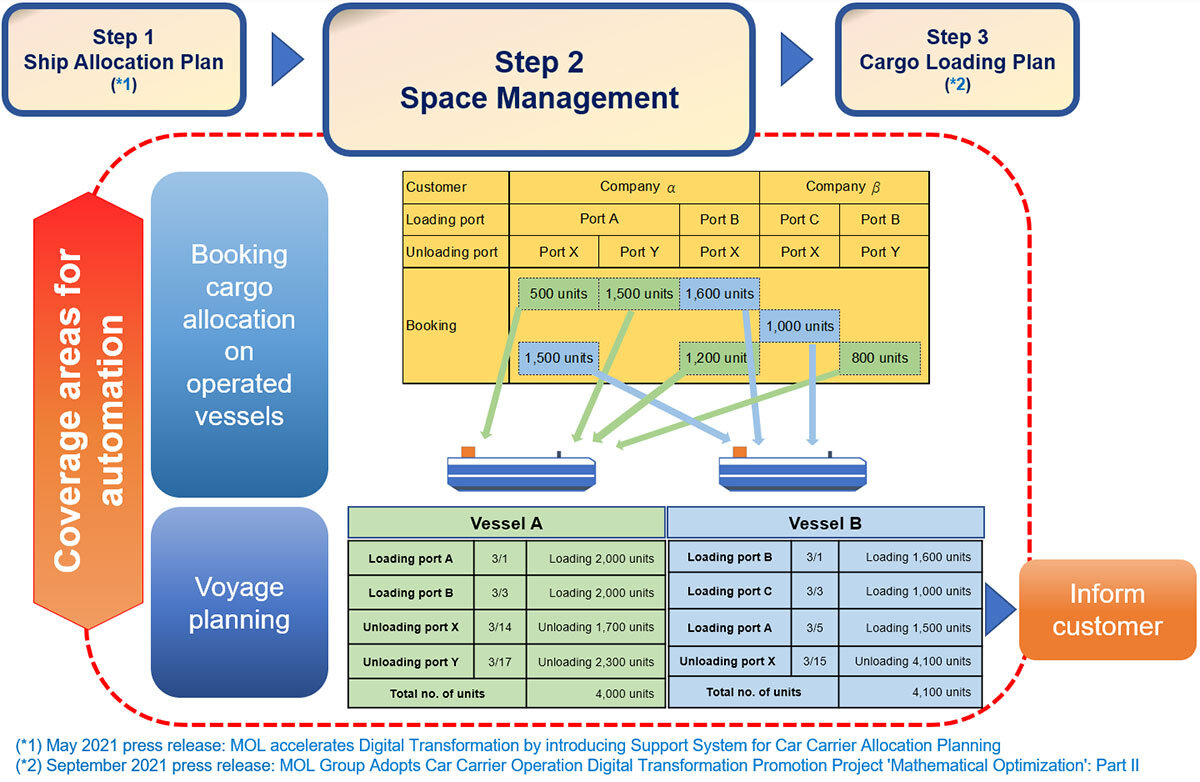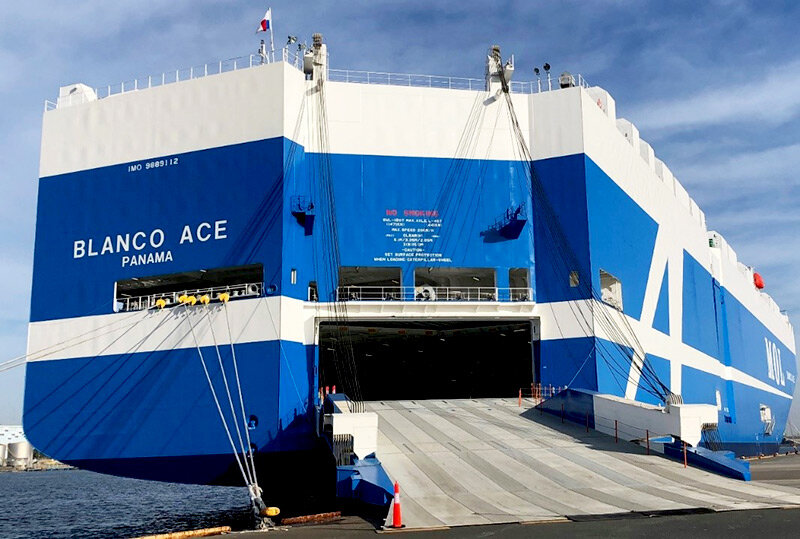- JP
- EN
MOL Group Adopts Car Carrier Operation Digital Transformation Promotion Project 'Mathematical Optimization': Part III
March 24, 2022
- With the Success of the Automated Space Management Demonstration Test for Car Carriers, Accelerating Approach to Improving Customer Satisfaction and Reducing Environmental Impact -
TOKYO-Mitsui O.S.K. Lines, Ltd. (MOL; President & CEO: Takeshi Hashimoto) and its group company MOL Information Systems, Ltd. (President: Tsuyoshi Yoshida; Headquarters: Minato-ku, Tokyo) today announced the success of a demonstration test of automated space management for car carriers (booking cargo allocation on operated vessels and accompanying voyage planning) (Fig.1), using mathematical optimization (Note 1), a technology both companies have been working on since 2019.
(Fig. 1) Coverage areas in this demonstration test

As a car carrier operator striving to meet customers' ocean transport needs and logistics requirements, the MOL Group must not only maximize use of the space on vessel, of course, but also simultaneously plan voyage schedules for several vessels, with safe transport as the absolute top priority. The group must also take into consideration a host of terms and conditions such as combinations of wide varieties of vehicle models, different loading/unloading ports, and requests related to loading/unloading port arrival schedules, while maximizing route efficiency. Highly skilled staff in charge of these operations approach it like a complex puzzle. The use of this newly developed algorithm allows simultaneous examination of about three times as many possible plans as the conventional process. This helps optimize voyage scheduling and benefits all parties involved.
Working closely with Professor Shunji Umetani (Note 2) of Osaka University, MOL has started operation of support systems, a "car carrier allocation plan" (Note 3) and "cargo loading plan" (Note 4). MOL will speed up overall decision-making in car carrier operations to offer the unprecedented attention to detail in transport service, more effectively addressing customer requests and accelerating its initiatives on reducing greenhouse gas emissions by realizing the use of mathematical optimization even in "space management of operated vessels," which bridges these two processes.
The MOL Group continually works to improve the quality of its transport service through digital transformation (DX), with the aim of becoming customers' first choice when selecting a business partner.

(Note 1) Mathematical optimization
An underlying technology of artificial intelligence (AI) and a method for decision-making and problem-solving. Mathematical optimization finds an answer that minimizes (or maximizes) objective functions under given constraints and conditions. It is used in a broad range of areas such as investment management, logistics and supply chain management, energy management, and scheduling.
(Note 2) Shunji Umetani, Endowed Chair Professor in the Graduate School of Information Science and Technology Acquired Ph. D (Informatics), Department of Applied Mathematics and Physics
Graduate School of Informatics, Kyoto University in 2003, and from 2008 belonged to Graduate School of Information Science and Technology, Osaka University and currently served as Endowed Chair Professor.
His focus is on combinatorial optimization. He is engaged in development of algorithms that efficiently find practical solutions for problems of large-scale and diversified combinations based on large-scale data collected from the real world. He is also working to develop real-world applications using mathematical optimization through industry-academia collaboration.
(Note 3) Please refer to the May 28, 2021, press release:
MOL accelerates Digital Transformation by introducing Support System for Car Carrier Allocation Planning
(Note 4) Please refer to the September 21, 2021, press release:
MOL Group Adopts Car Carrier Operation Digital Transformation Promotion Project 'Mathematical Optimization': Part II - Improving Customer Satisfaction and Reducing Environmental Impact with More Efficient Cargo Loading Plans -

